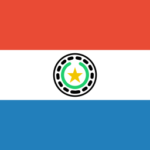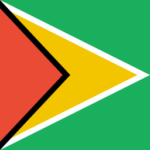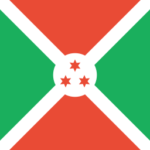Fees for registering Burundi trademarks
Service Process
Trademark registration time
Burundi is located on the east bank of Tanganyika Lake in central Africa. The current trademark laws and regulations are mainly based on the Industrial Property Law promulgated on July 28, 2009. The Ministry of Trade, Industry, and Tourism is responsible for managing intellectual property affairs, and the official languages are French, Kirundi, and Swahili. Trademark exclusive rights need to be obtained through registration. The trademark registration in Burundi adopts the principle of "first application", but in some cases, trademark rights can also be claimed by "first use".
Burundi is a party to the TRIPS Agreement, the Paris Convention and other international intellectual property treaties. It is an observer country of the African Industrial Property Organization and has not yet joined the Madrid system. Therefore, trademark registration can only be handled through "single country registration".
Trademark Registration Process
At present, Burundi officially adopts the goods and services description of the 11th edition of the Nice Classification and accepts one form of multi category applications. Elements that can be registered as trademarks in Burundi include: words, names, graphics, three-dimensional signs, color combinations, slogans, sounds, smells, taste, etc.
If the applicant does not live in Burundi, he/she must entrust his/her own special agent. The basic materials required for trademark application are:
1. Trademark design;
2. Category and specific product items;
3. Name and address of the applicant;
4. Power of attorney;
5.If priority is declared, priority proof documents and corresponding French translations must be provided.
The main process of applying for the registration of Burundi's trademark is: application - acceptance - examination - announcement - approval - issuance. After the application is submitted, the official first conducts a formal review, mainly examining whether the application documents and classification information comply with regulations. Generally, it takes about 4 weeks to complete the acceptance. After acceptance, substantive examination of the trademark will be conducted, including examination of the distinctiveness of the trademark, whether it violates the prohibition and prohibition clauses, and whether it conflicts with the prior trademark. After passing the examination, it will be announced; If the review fails, a rejection notice will be issued and the applicant will be required to respond within the time limit specified in the rejection notice.
The objection period is 30 days from the date of the initial review announcement. Any interested party or prior right holder may raise objections, and the main reasons for raising objections are:
1. Conflict with prior trademarks, such as owning a prior registered trademark;
2. The trademark lacks distinctiveness;
3. The trademark has adverse effects;
4. Malicious registration;
5. Conflict with other prior rights, such as trade name rights, design rights, copyrights, personal names, etc.
If there are no objections or objections are not valid during the announcement period, registration can be approved and a registration certificate can be issued after the objection period ends. Under smooth conditions, the trademark registration in Burundi will take about 2 years; If things don't go smoothly and there are objections or rejections along the way, the time will be greatly extended.
Trademark registration materials
The trademark of Burundi is valid for 10 years after registration, and the period of validity starts from the application date; Renewal can be processed within 6 months before the expiration date, with a grace period of 6 months; The renewal is valid for 10 years.
Start Your Trademark Business
Start Registration

do not understand? Contact us

do not understand? Contact us

do not understand? Contact us

do not understand? Contact us


 Burundi
Burundi